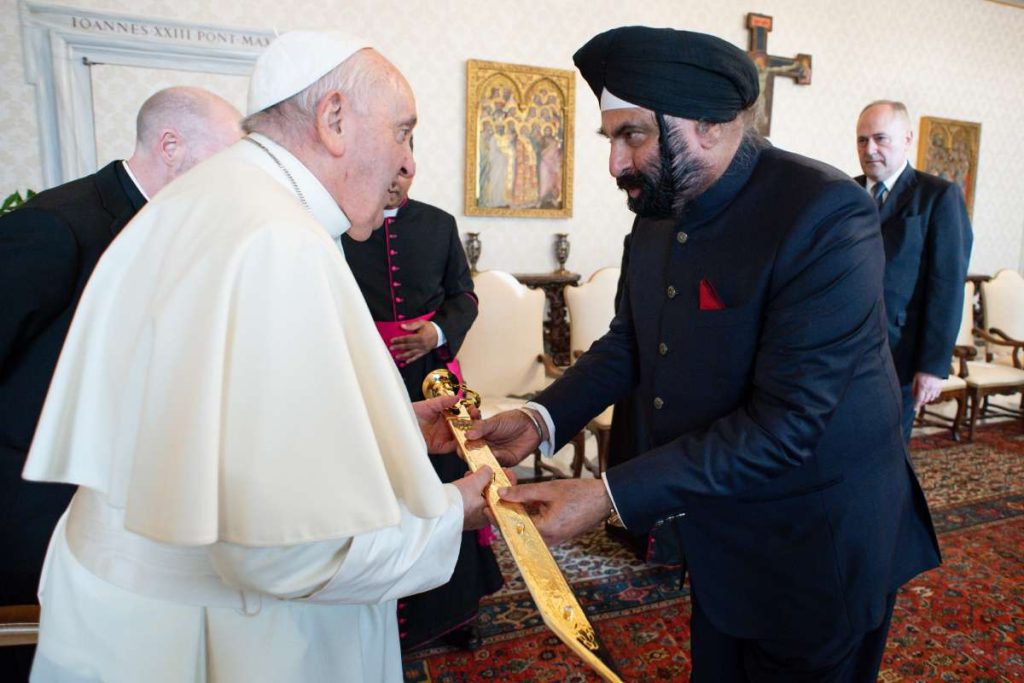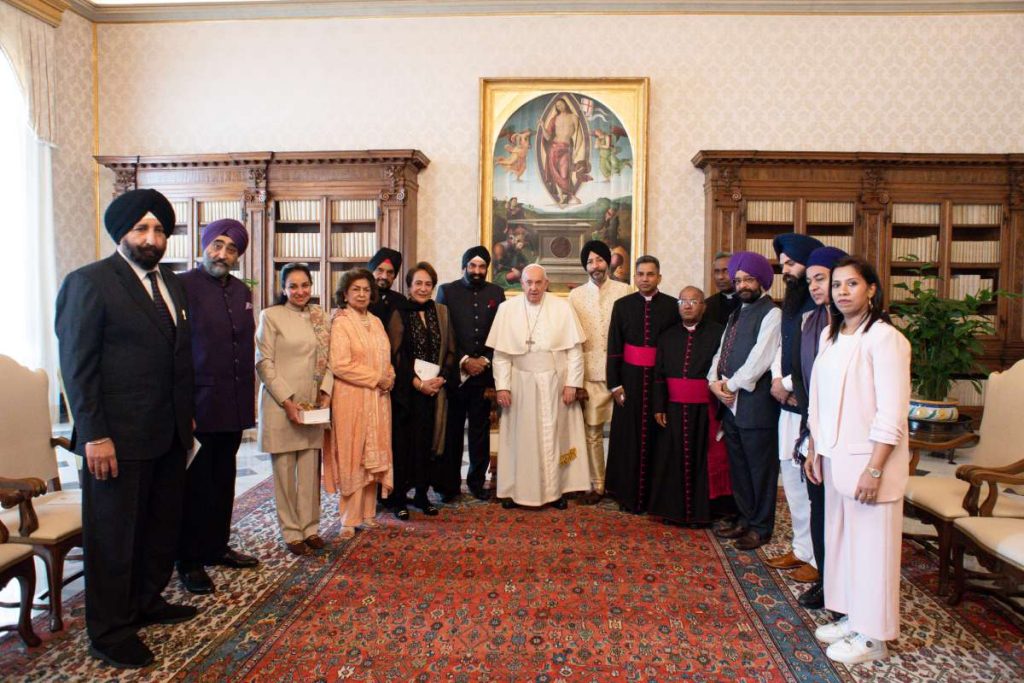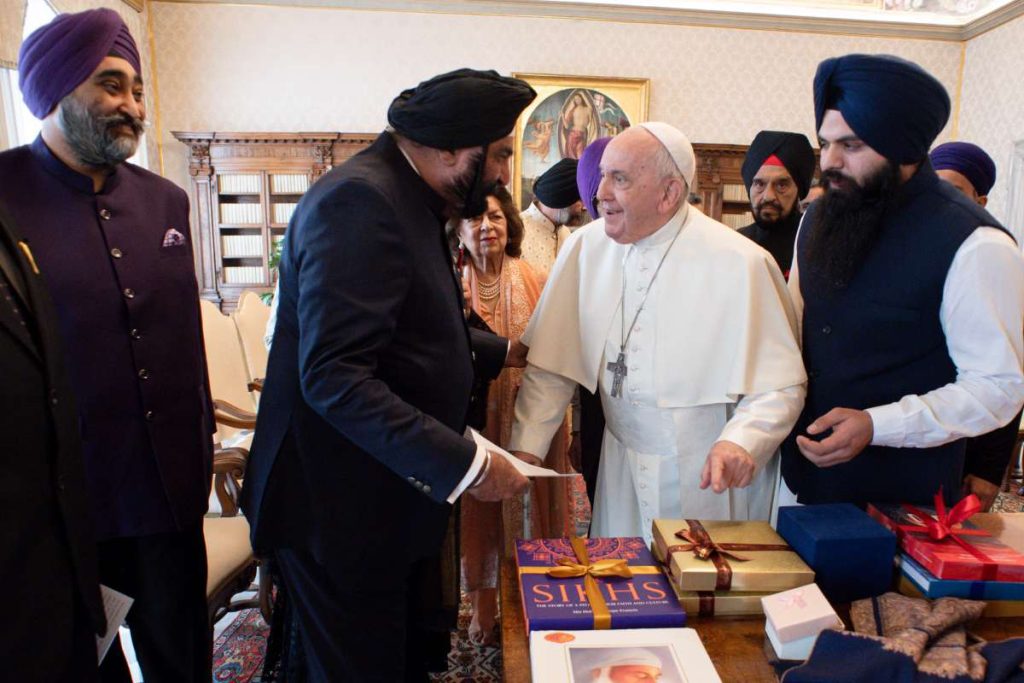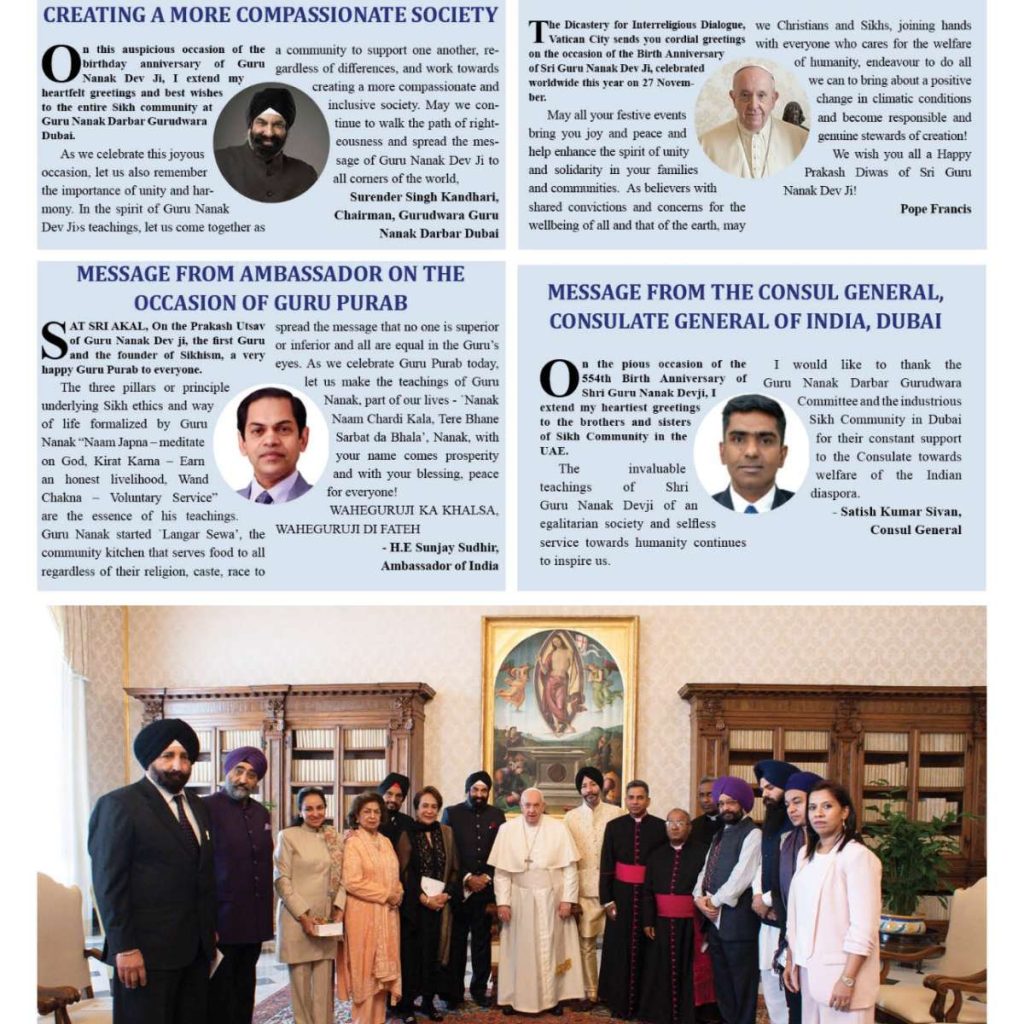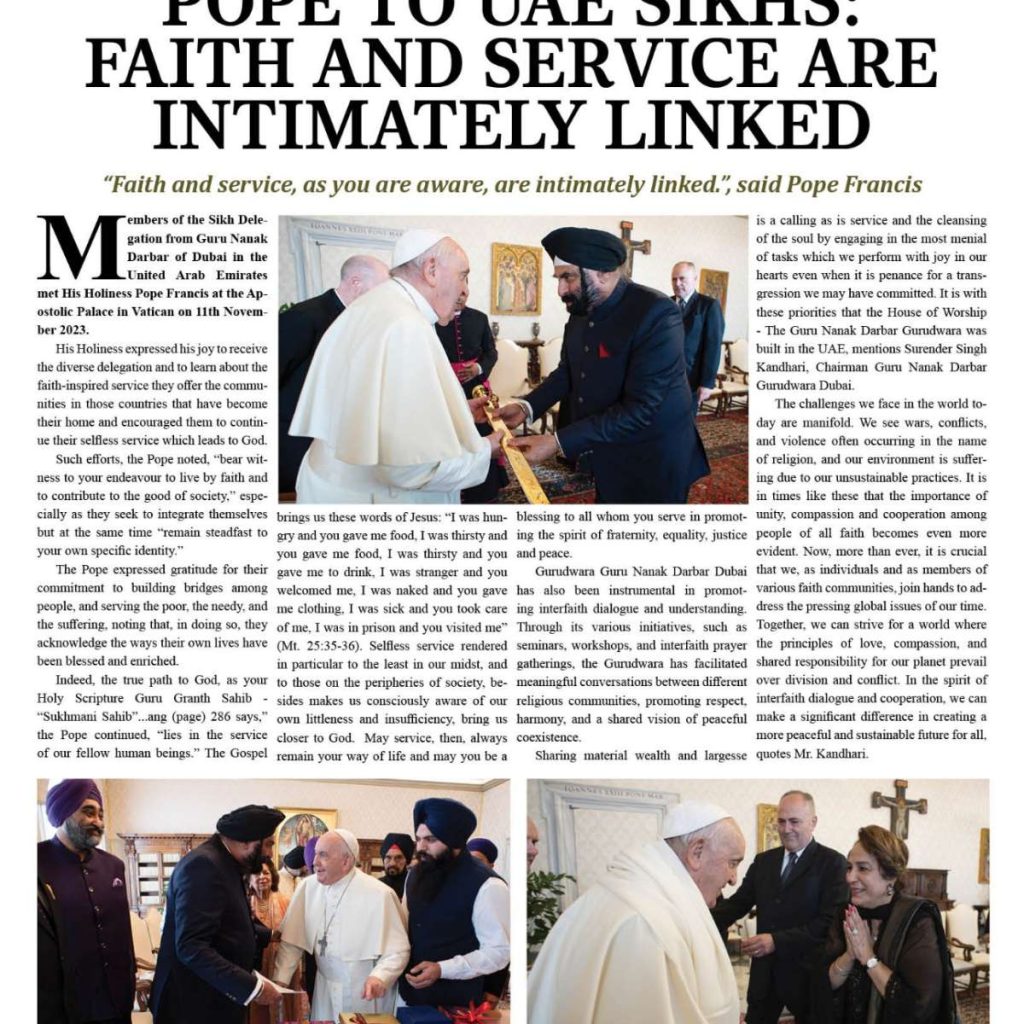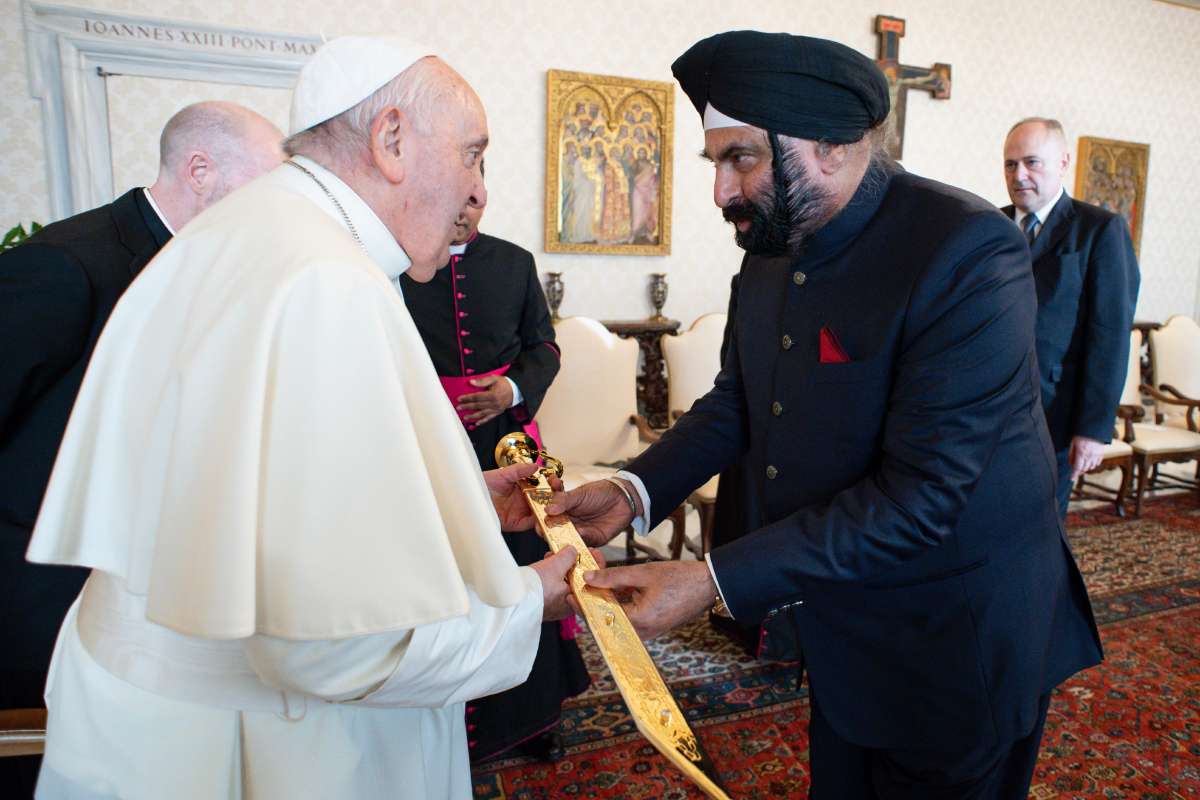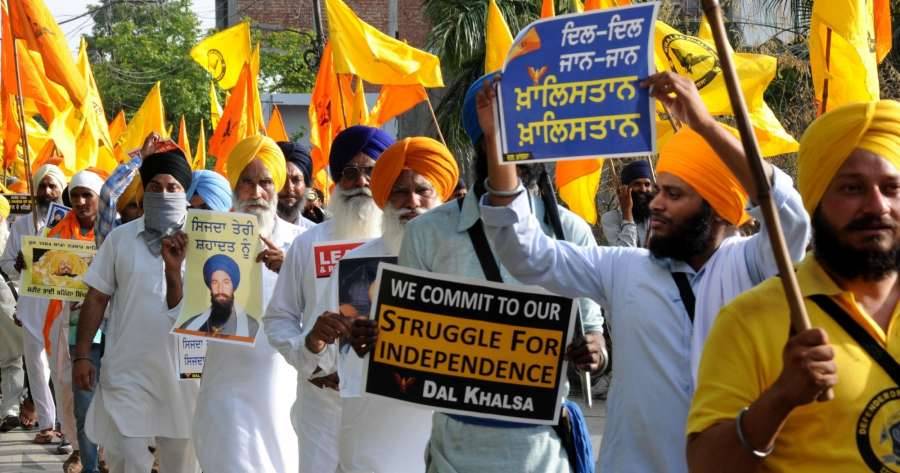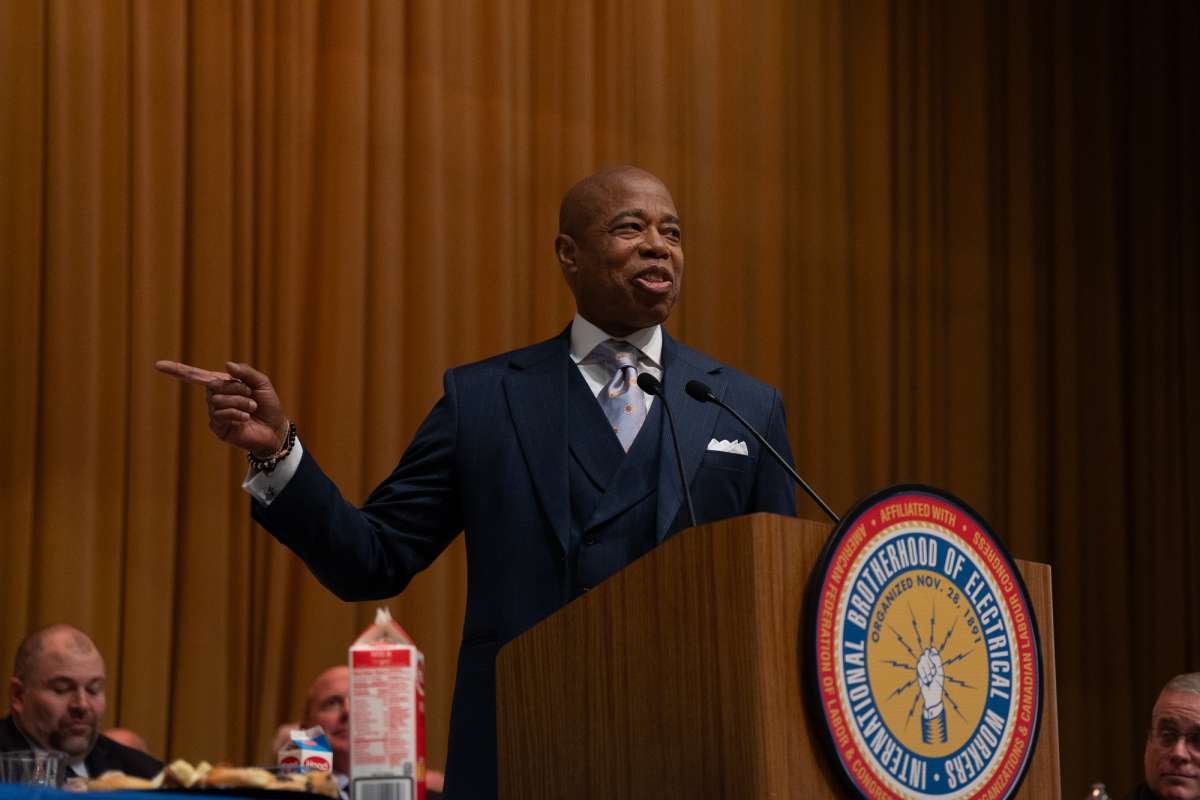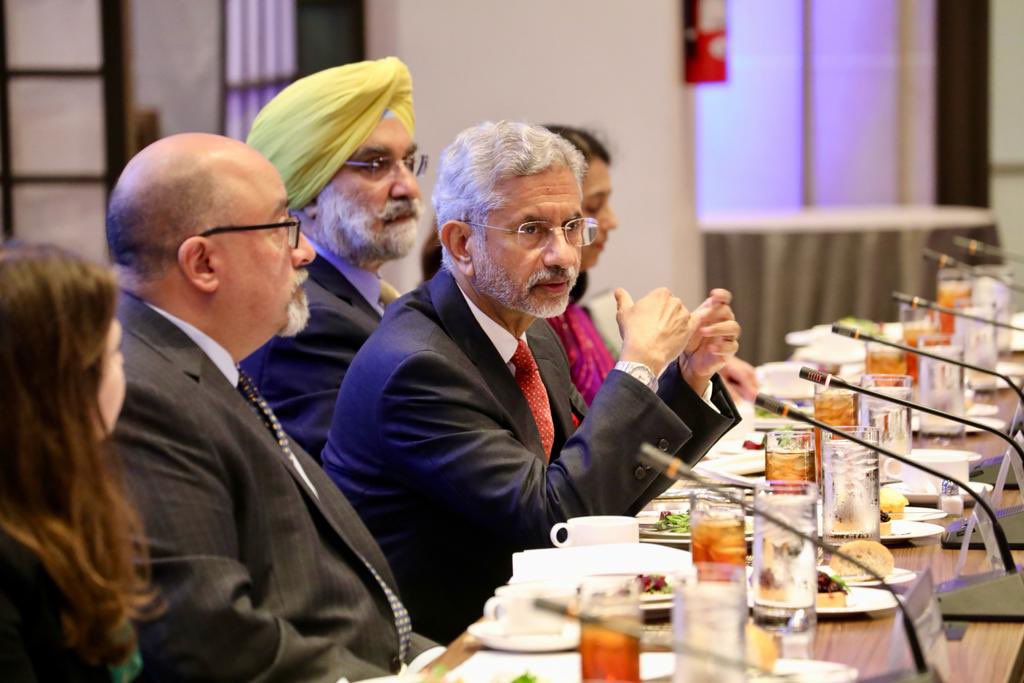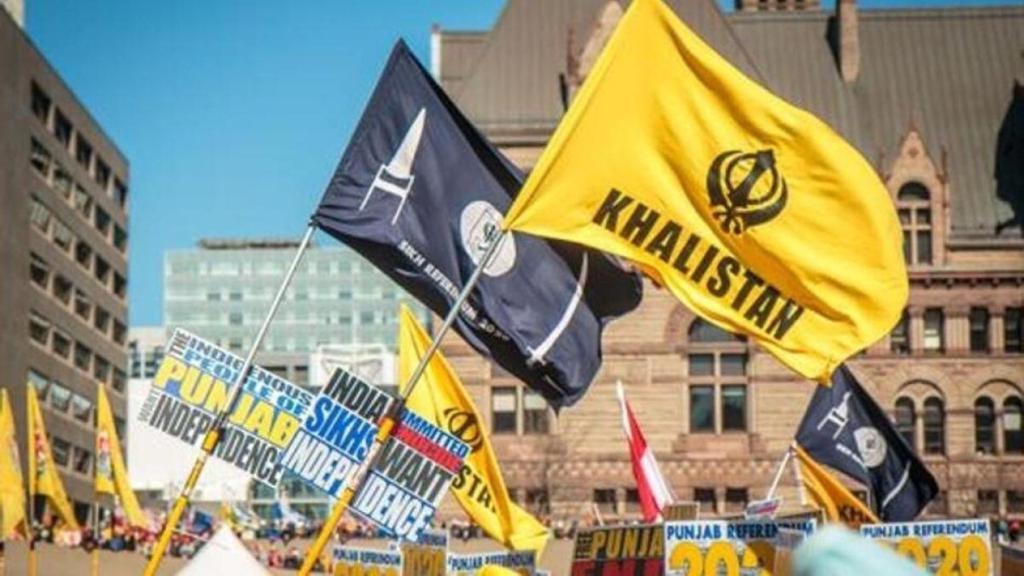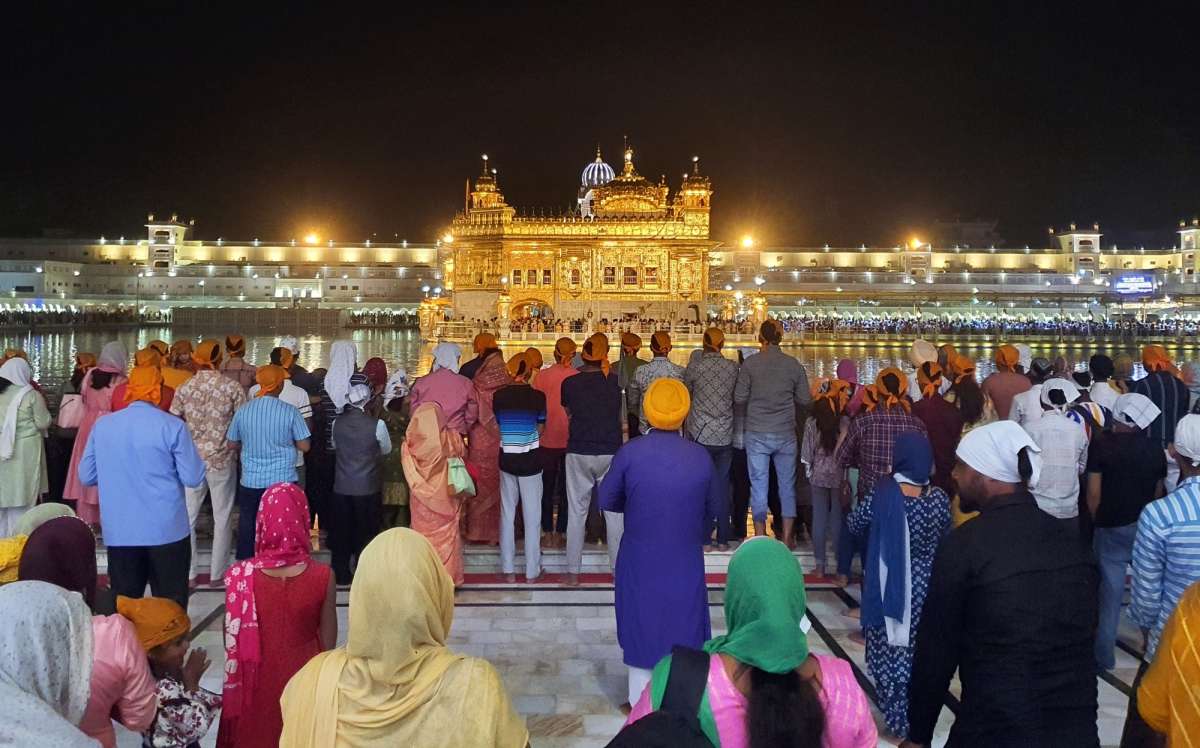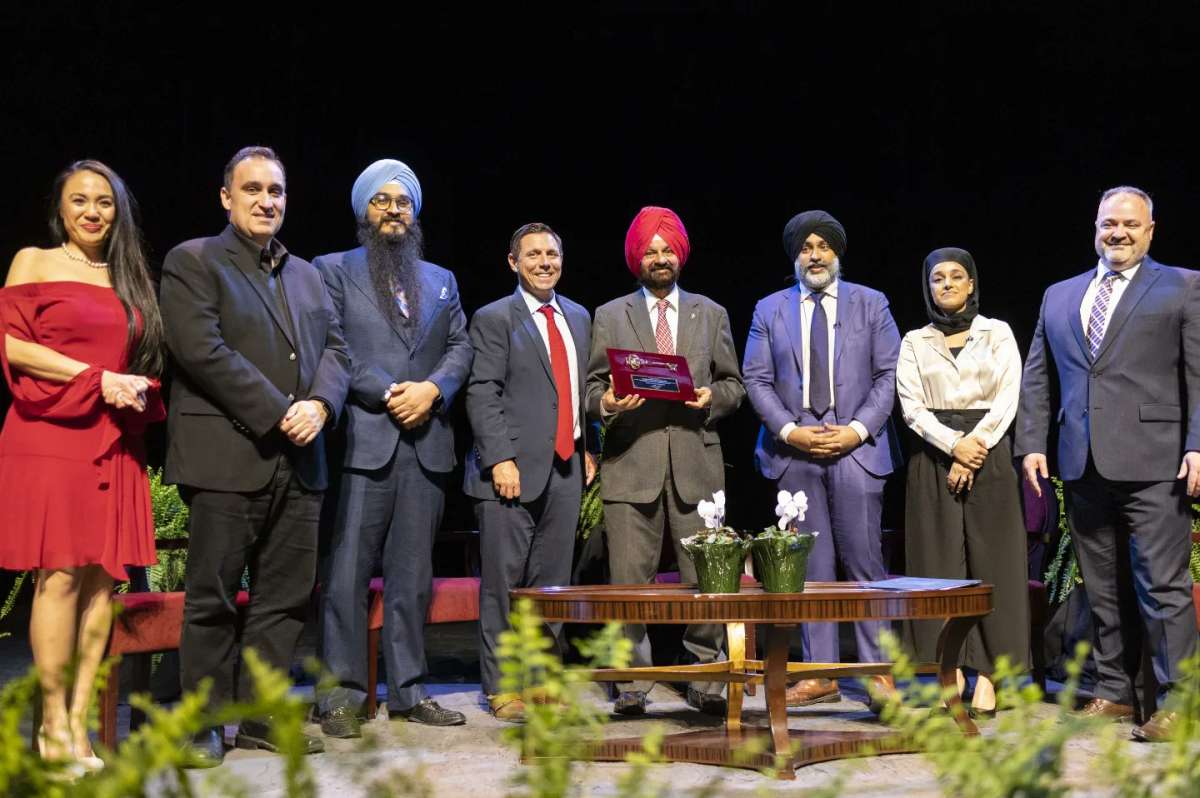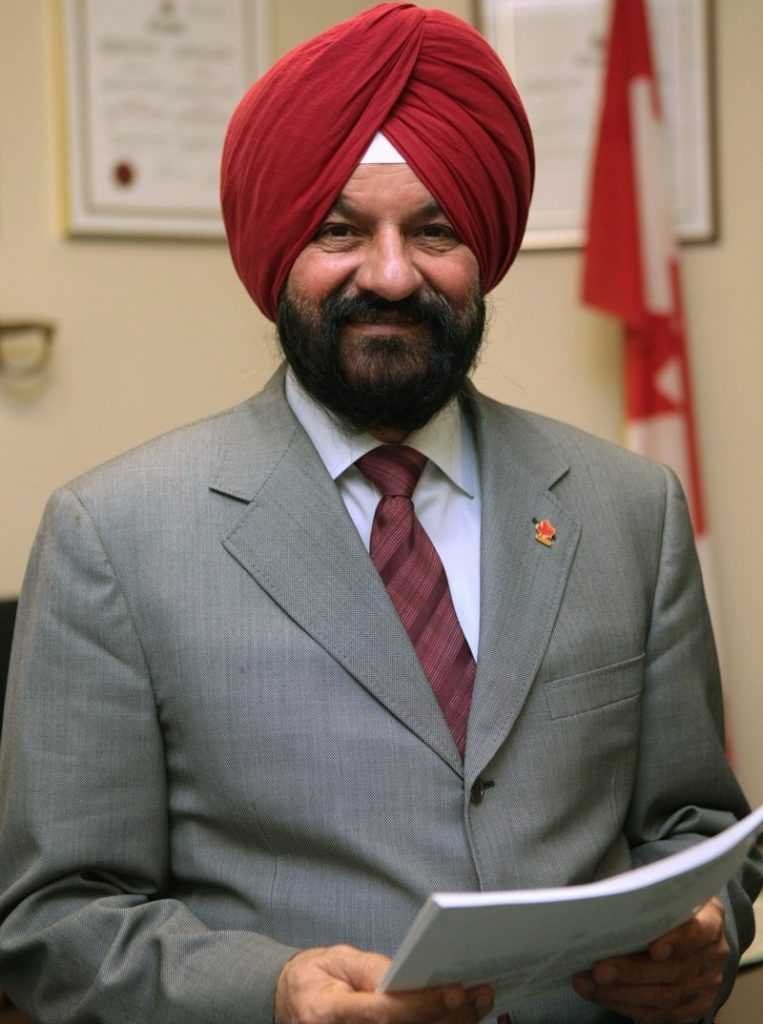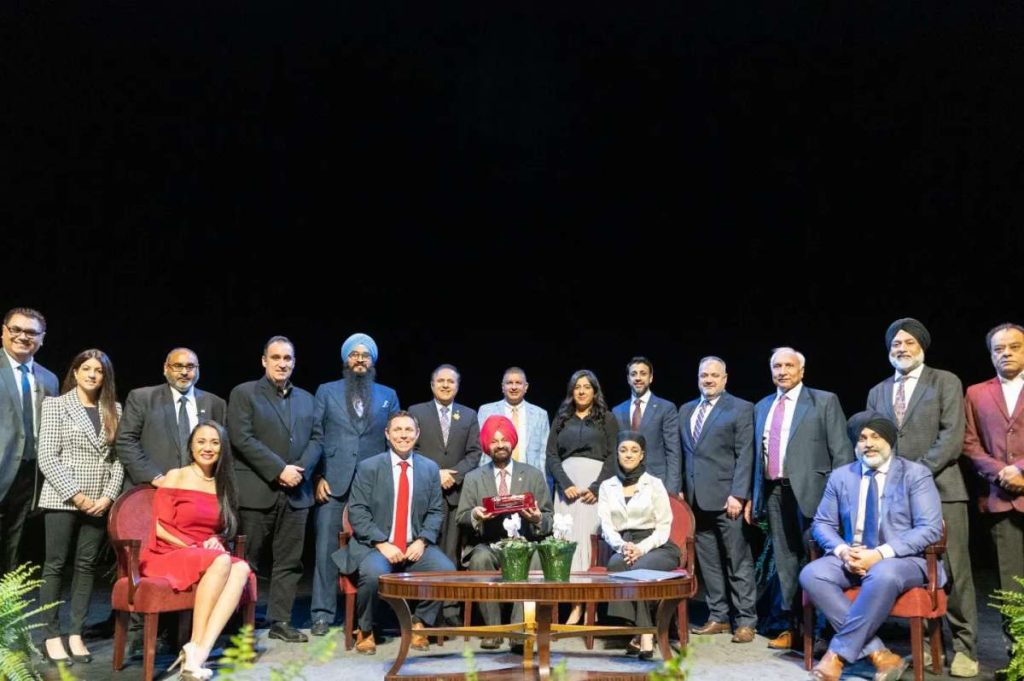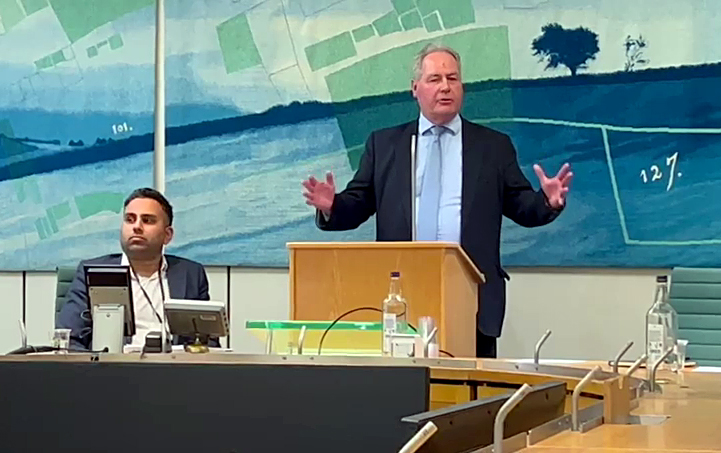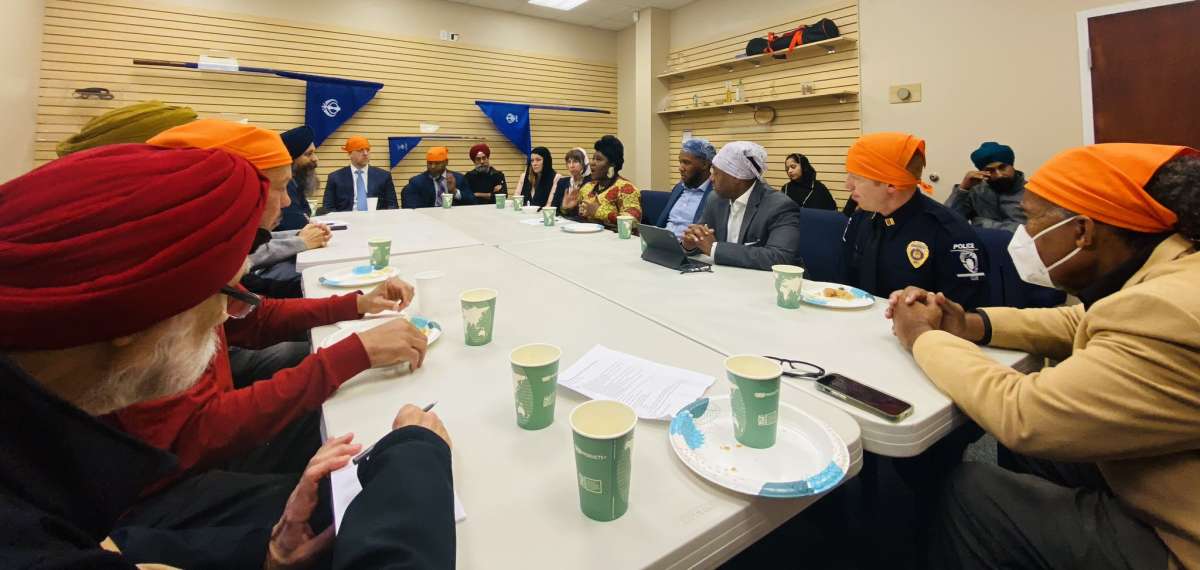“Faith and service, as you are aware, are intimately linked.”, said His Holiness Pope Francis
Members of the Sikh Delegation from Guru Nanak Darbar of Dubai in the United Arab Emirates met His Holiness Pope Francis at the Apostolic Palace in Vatican on 11th November 2023.
His Holiness expressed his joy to receive the diverse delegation and to learn about the faith-inspired service they offer the communities in those countries that have become their home and encouraged them to continue their selfless service which leads to God.
Such efforts, the Pope noted, “bear witness to your endeavour to live by faith and to contribute to the good of society,” especially as they seek to integrate themselves but at the same time “remain steadfast to your own specific identity.”
The Pope expressed gratitude for their commitment to building bridges among people, and serving the poor, the needy, and the suffering, noting that, in doing so, they acknowledge the ways their own lives have been blessed and enriched.
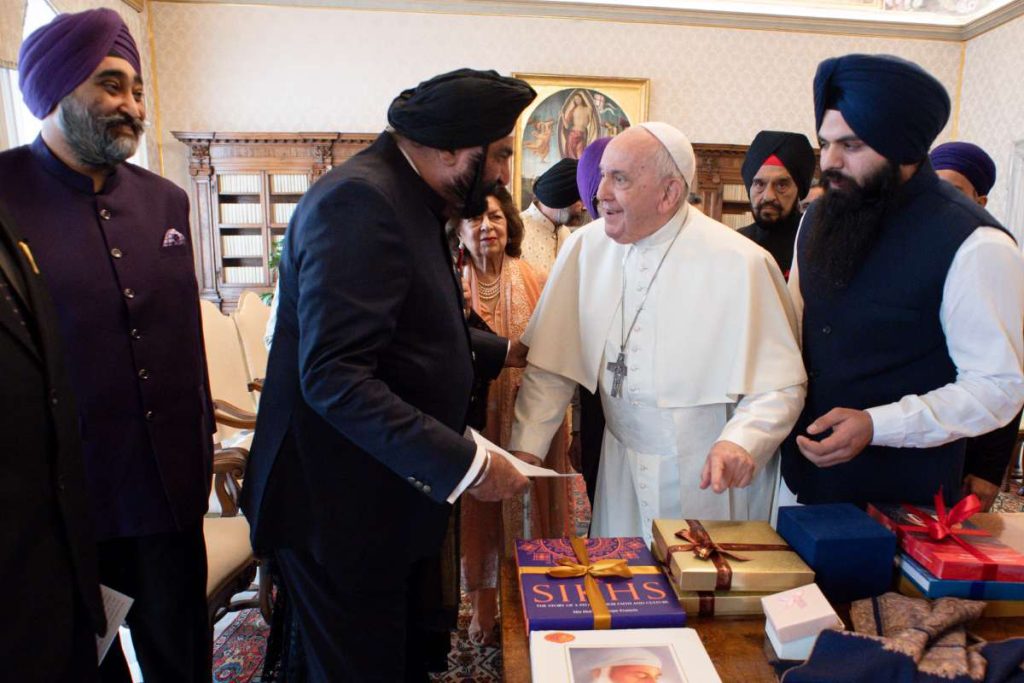
Indeed, the true path to God, as your Holy Scripture Guru Granth Sahib – “Sukhmani Sahib”…ang (page) 286 says,” the Pope continued, “lies in the service of our fellow human beings.” The Gospel brings us these words of Jesus: “I was hungry and you gave me food, I was thirsty and you gave me food, I was thirsty and you gave me to drink, I was stranger and you welcomed me, I was naked and you gave me clothing, I was sick and you took care of me, I was in prison and you visited me” (Mt. 25:35-36). Selfless service rendered in particular to the least in our midst, and to those on the peripheries of society, besides makes us consciously aware of our own littleness and insufficiency, bring us closer to God. May service, then, always remain your way of life and may you be a blessing to all whom you serve in promoting the spirit of fraternity, equality, justice and peace.
Gurudwara Guru Nanak Darbar Dubai has also been instrumental in promoting interfaith dialogue and understanding. Through its various initiatives, such as seminars, workshops, and interfaith prayer gatherings, the Gurudwara has facilitated meaningful conversations between different religious communities, promoting respect, harmony, and a shared vision of peaceful coexistence.
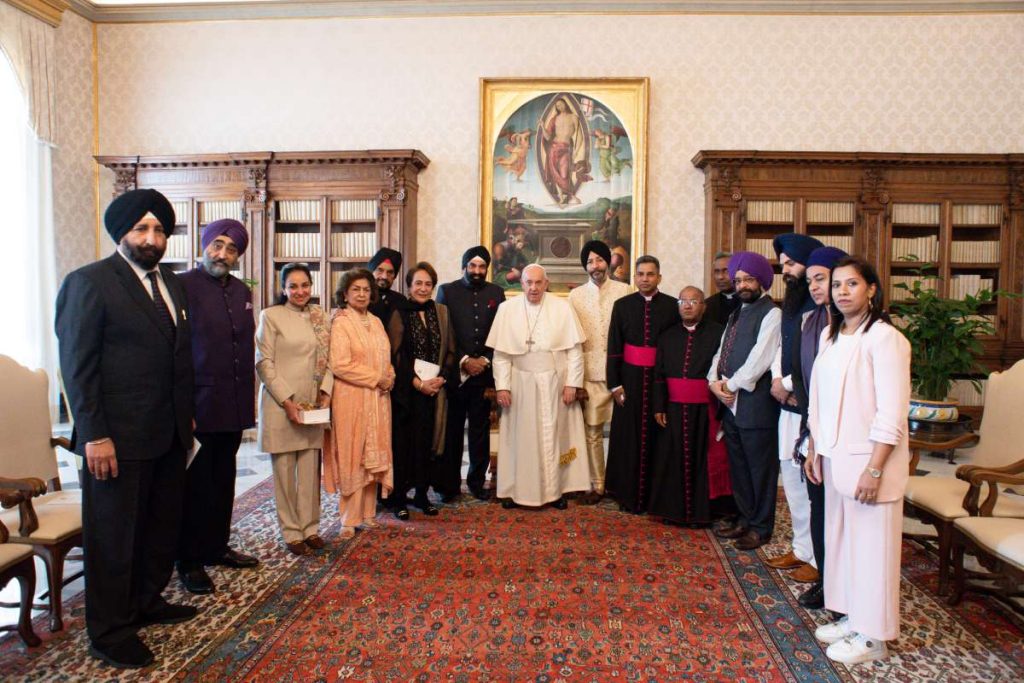
Sharing material wealth and largesse is a calling as is service and the cleansing of the soul by engaging in the most menial of tasks which we perform with joy in our hearts even when it is penance for a transgression we may have committed. It is with these priorities that the House of Worship – The Guru Nanak Darbar Gurudwara was built in the UAE, mentions Surender Singh Kandhari, Chairman Guru Nanak Darbar Gurudwara Dubai.
The challenges we face in the world today are manifold. We see wars, conflicts, and violence often occurring in the name of religion, and our environment is suffering due to our unsustainable practices. It is in times like these that the importance of unity, compassion and cooperation among people of all faith becomes even more evident. Now, more than ever, it is crucial that we, as individuals and as members of various faith communities, join hands to address the pressing global issues of our time. Together, we can strive for a world where the principles of love, compassion, and shared responsibility for our planet prevail over division and conflict. In the spirit of interfaith dialogue and cooperation, we can make a significant difference in creating a more peaceful and sustainable future for all, quotes Mr. Kandhari.

The Dicastery for Interreligious Dialogue, Vatican City sends you cordial greetings on the occasion of the Birth Anniversary of Sri Guru Nanak Dev Ji, celebrated worldwide this year on 27 November. May all your festive events bring you joy and peace and help enhance the spirit of unity and solidarity in your families and communities. As believers with shared convictions and concerns for the wellbeing of all and that of the earth, may we Christians and Sikhs, joining hands with everyone who cares for the welfare of humanity, endeavour to do all we can to bring about a positive change in climatic conditions and become responsible and genuine stewards of creation!
We wish you all a Happy Prakash Diwas of Sri Guru Nanak Dev Ji!
On this auspicious occasion of the birthday anniversary of Guru Nanak Dev Ji, I extend my heartfelt greetings and best wishes to the entire Sikh community at Guru Nanak Darbar Gurudwara Dubai. As we celebrate this joyous occasion, let us also remember the importance of unity and harmony. In the spirit of Guru Nanak Dev Ji’s teachings, let us come together as a community to support one another, regardless of differences, and work towards creating a more compassionate and inclusive society. May we continue to walk the path of righteousness and spread the message of Guru Nanak Dev Ji to all corners of the world, Surender Singh Kandhari, Chairman, Gurudwara Guru Nanak Darbar Dubai.
